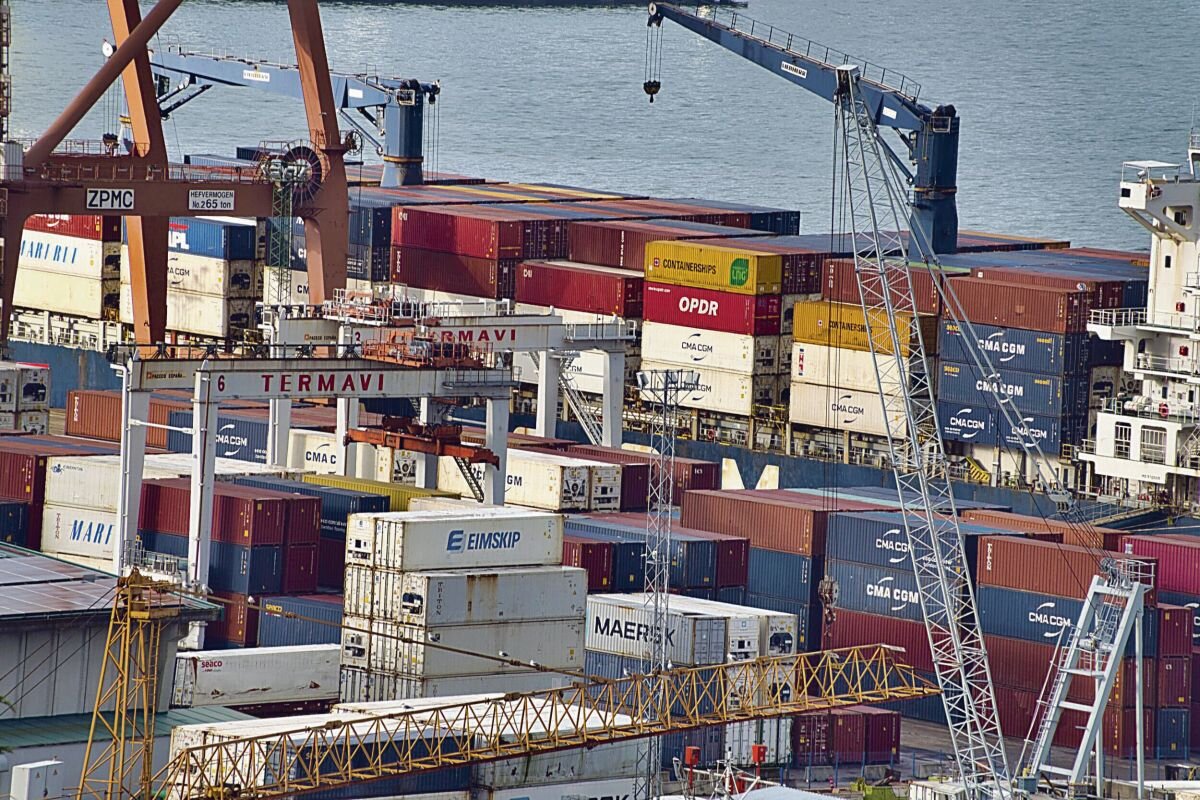China is important for Vigo and the province of Pontevedra. It is the province’s first supplier of goods abroad (imports) and the nineteenth client for exports, the first in Asia, according to 2023 data from the foreign trade base of the Chambers of Commerce.
In addition, imports from the Asian giant grew by 49% in 2023 compared to the previous year and have doubled since 2020, while exports increased by 50% since the pandemic. Pontevedra is the fifth Spanish province that imports the most from China, only behind Barcelona, Madrid, Valencia and Zaragoza. Last year it was 1.7 billion and from January to June of this year it was 519 million euros. It is the dthirteenth exporting province of Spain to the Asian giant.
The director of Internationalization of Igape, Augusto Álvarez Borrásexplains that “China is an eternal potential, which can become opportunities for a certain sector or company.”
He points out that “China is a boiling giant in all types of sectors and in search of production areas. This means that in the automotive industry they are constantly looking for launches in different parts of the world, where it could be interesting to produce there due to proximity to consumer markets.” He points out that “for electric cars and components, Chinese companies have been tracking locations for years” and even “there are many companies that have been close to establishing themselves in Galicia that have remained anonymous.”
They have us on their radar
What is clear is that “they are always tracking Galicia“They have us on their radar in sectors such as agri-food, metal, biotechnology or renewables and in general sectors that are oriented towards internationalization,” he emphasizes, such as automotive and naval.
In the Vigo area, the most striking cases are those of the Albo canning company, bought by the multinational Shanghai Kaichuang; or that of the porriñesa boilermaking company Gándara Censa, of the Citic group. But also the relationship in the world of fishing, in fact China is a traditional exhibitor at the Conxemar fair with its own stand for its companies.
As for future prospects, in recent months, since it was announced that the EU was going to impose tariffs on the entry of Chinese cars into Europe, project announcements have come out like mushrooms in the fall. Regarding Galicia and Vigo, the Chinese automobile company SAIC confirmed to President Pedro Sánchez its interest in Spain for the first MG factory in Europe. The Xunta applauded the proposal and also own Minister of Industry, María Jesús Lorenzana, pointed out the province of Pontevedra as an “ideal candidate”, with Plisan in mind.
Settling in Europe would be a way to avoid tariffs and the cars would have the seal of being manufactured in the EU, in addition to securing footholds in certain economic zones. The Twenty-seven will have to vote in November if they make the tariffs final.
Igape confirms that “there are always Chinese companies tracking Galicia”
“They are always tracking Galicia, Chinese companies have us on their radar in sectors such as agri-food, metal, biotechnology or renewables and in general sectors that are oriented towards internationalization,” explains Augusto Álvarez Borrás, director of Internationalization at Igape.
The Galician Institute for Economic Promotion (Igape) has office in China for eight years from which actions are organized with companies interested in the Chinese market, half from the fishing sector and the other half from the rest of the sectors. He has more than 100 inquiries a year from Galician companies.
“It is a complex market,” says Augusto Álvarez Borrás. “The difficulties are marked by remoteness, cultural difference and market restrictions. The barriers to entry are evident,” he says. Beijing is no stranger to protectionist policies with entry tariffs and the obligation to have a local partner for anyone who wants to settle there. Given the complexity, the person responsible for the Igape explains that “we see that institutional relationships play an important role to be in that market. In our actions in the Chinese market it is necessary to be in contact with the embassy and institutions.”
Waiting for the decision of the MG parent company for its factory
The rise in EU tariffs on Chinese cars is changing the strategies of the brands, which have announced their intention to manufacture in Europe. BYD and the Chery group, parent of the Omoda and Jaecoo brands and which will assemble vehicles in the Barcelona Free Zone, are joined by the British brand MG, owned by the Chinese group SAIC, which has accelerated its plans to manufacture vehicles in Europe. Galicia has confirmed the contacts and has put on the table the advantage of having an auxiliary industry. Other Spanish communities and other countries such as the Czech Republic and Hungary also compete.
